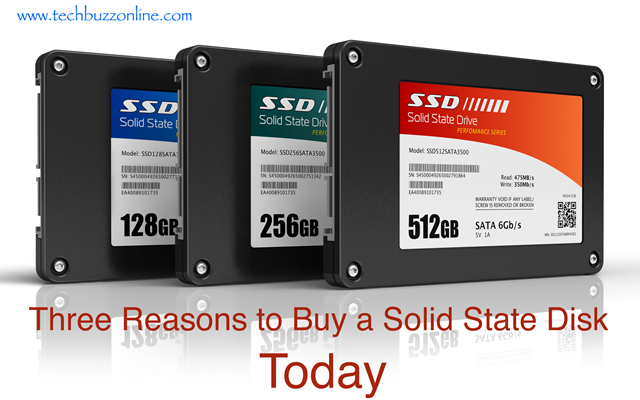
For quite some time I have been considering whether or not to go for an SSD in either my laptop, or my desktop computers at home. I suspect many people are also wondering whether it is a ‘good thing’ or not.
I also suspect that like many other people just simply being told ‘it is fast’ doesn’t help with that decision making process! Some information on the internet points to reliability issues with SSDs, which also doesn’t help the decision making process for mere mortals like you and I.
For those reasons I decided to do a little bit of research on the internet over the last few weeks to see what I can glean.
Here are three reasons you should go SSD today:
Speed
SSD are fast.
They are far faster than regular drives. Everyone agrees that they are faster. Well, yes, but how much faster? Places like Amazon.co.uk list the read and write speeds of many of their SSDs, but seldom do they list the speed of their regular drive counterparts.
For example the Samsung 830 256 Gb SATA 3 SSD is listed on Amazon with speeds of 520 Mb/sec for reads, and 400 Mb/sec for writes.
Many of the top-of-the-range regular drives like the Western Digital Scorpio Black 7200 rpm disk reports speeds of around 100 Mb/sec for reads, and the same for writes. That is much, much less than the SSD rates.
To get some comparative information we have to head off to third party sites and gather information from searches of the internet. Tom’s Hardware does a good comparison of lots of different drives:
http://www.tomshardware.com/charts/2009-3.5-desktop-hard-drive-charts/h2benchw-3.12-Avg-Read-Throughput,1010.html
And
http://www.tomshardware.com/charts/2009-3.5-desktop-hard-drive-charts/h2benchw-3.12-Avg-Write-Throughput,1013.html
Straight away you can see that even in top end drives read/write speed is likely to be around 130 Mb/Sec. That’s not a patch on the Samsung 830 Series.
Even SSDs in the cheaper end of the market like the just-announced Crucial V4 shows read/write speeds of 230 Mb/s and 190 Mb/s.
Energy
There are other good attributes to SSD’s, and these shouldn’t simply be forgotten. Most notable is reduced power consumption meaning less heat, and longer battery life if you’re using the drive in a notebook machine. Some SSD’s are reported to use a tenth of the power of regular drive cousins.
Don’t get me wrong many of the regular drives for laptops and desktops are starting to take the power side of things seriously. The Western Digital Scorpio mentioned above touts 7200 rpm spin speeds for the power consumption of 5400 rpm drives.
Anecdotes
Finally there is a wealth of anecdotal evidence from people who have put SSD’s into all sorts of machines and experienced somewhat rapturous moments. These vary from improved performance to much improved battery life.
I’m not sure that you and I will always get that same mileage (after all a clean Operating System install on almost any system makes it ‘fast’ for a while) but by all the posts/blogs out there on the internet, SSDs will make a speed difference, and will improve battery life on a notebook system.
Conclusion
The price of these devices is still falling so is now a good time to jump to one? Well, to my mind spending just under a £100 seems like a no-brainer, and if you are in the mood to reinstall your machine, I’d say go for it. The water-shed of $1 per Gb is also now a reality, and at that sort of price you can’t really go wrong.
Rob Wilcox has been in the IT industry for almost 20 years supporting many Microsoft technologies such as Windows, and Exchange. His main expertise lies within the world of messaging as well as archiving with Symantec Enterprise Vault. He spends his time mentoring and providing useful tips on his blog, following a recent move to the coast of North Cornwall.
